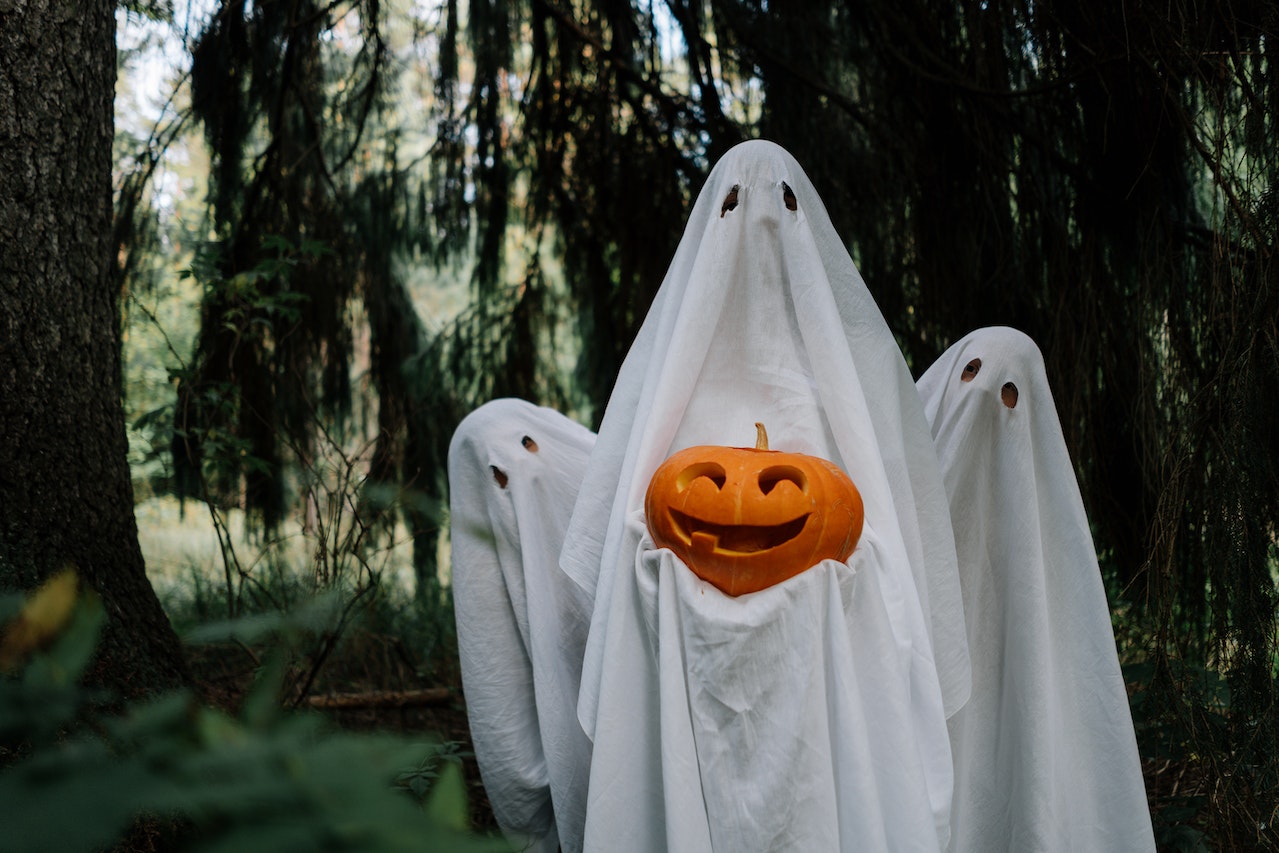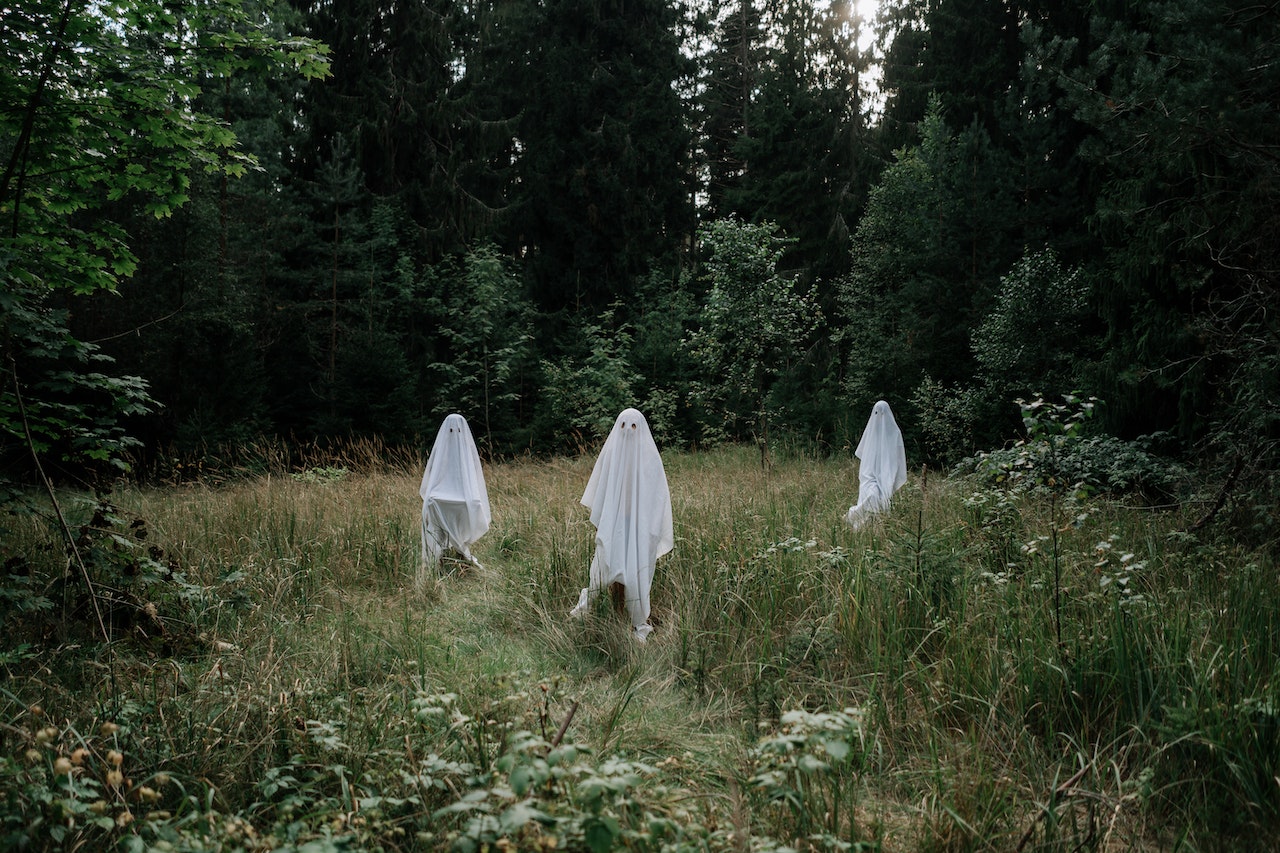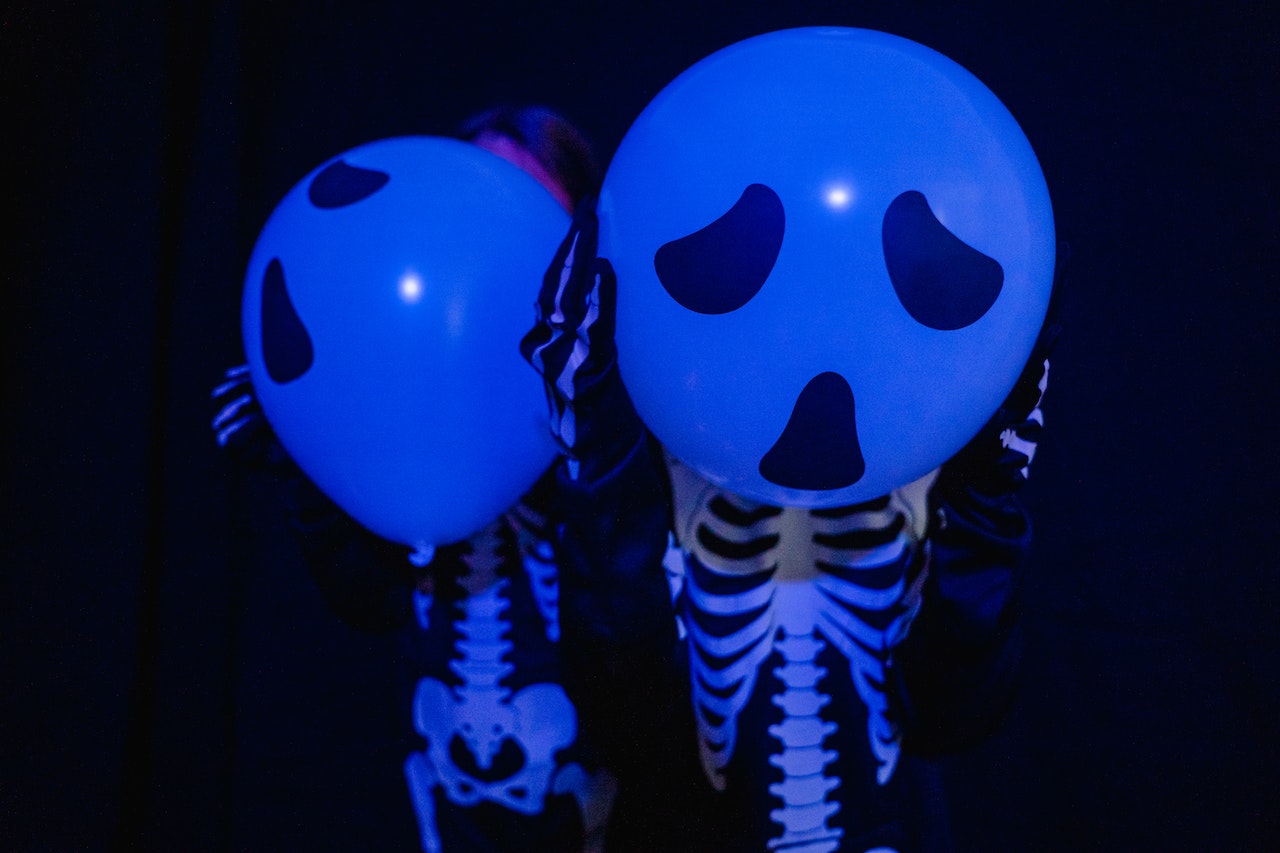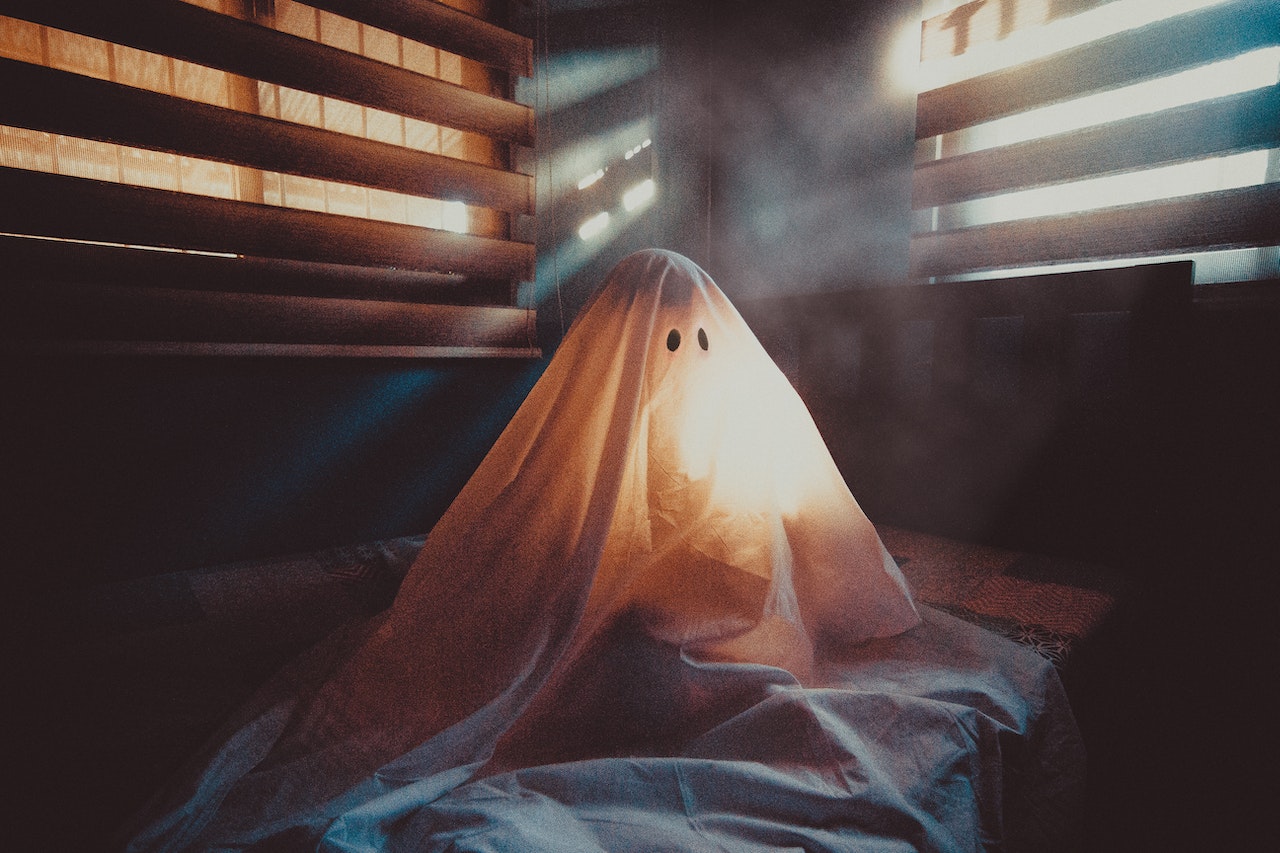
This age-old question has intrigued and mystified humanity for centuries: Are ghosts real? While some dismiss the existence of ghosts as mere folklore and superstition, others claim to have had firsthand encounters with these supernatural entities.
This article will delve deep into the realm of the paranormalto examine the evidence, theories, and experiences that have fueled the ongoing debate over the existence of ghosts.
The History Of Ghost Belief
The idea that a person's spirit exists independently from their body and could survive after they pass away is the foundation of the concept of a ghost, also known as a specter. This notion led many civilizations to adopt funeral customs as a means of preventing the departed person's soul from returning to "haunt" the living.
It is standard for old homes or the location of a person's death to be haunted; these locations are said to be connected to some event or emotion from the ghost's past. In addition to actual ghostly manifestations, classic haunting warning signs include odd sounds, lights, smells, winds, the relocation of things, bells that ring on their own, and musical instruments that play by themselves.
The history of humanity is intricately intertwined with a deep-seated belief in ghosts. These spectral entities have appeared in countless forms throughout different historical periods and cultural contexts.
Ancient Origins - Ancestral Spirits And Divine Messengers
Ghosts, or similar supernatural entities, have a history that dates back to ancient civilizations. In the earliest societies, such as the Egyptians and Mesopotamians, the spirits of the deceased were revered as ancestral guides and protectors. These early beliefs were often intertwined with religious convictions, where ghosts served as intermediaries between the living and the divine.
The Classical World - Vengeful Spirits And Unfinished Business
In ancient Greece and Rome, the concept of ghosts took a more complex and, at times, ominous turn. The shades of the deceased were believed to return to the living realm for a variety of reasons. Some were thought to seek vengeance, while others were assumed to have unresolved issues that kept them tethered to the earthly plane. This shift marked a transition from benevolent ancestral spirits to potentially malevolent entities, setting the stage for a broader range of ghostly experiences.
The Middle Ages - Christian Influence And Purgatorial Suffering
With the spread of Christianity, the understanding of ghosts evolved yet again. Christian theology introduced the concept of Purgatory, a place where souls underwent purification before ascending to heaven. Ghosts from this era often reflected the notion of spirits trapped in this transitional state, seeking prayers and offerings from the living to expedite their journey to the afterlife. The Church also played a significant role in shaping perceptions of the supernatural, with exorcisms and religious rituals aimed at combating malevolent spirits.
The Renaissance - Resurgence Of Interest And Exploration
The Renaissance era witnessed a resurgence of interest in the supernatural, including ghosts. During this time, the boundaries between the material and spiritual worlds blurred, leading to an explosion of occult practices, alchemy, and the study of the esoteric. As scholars delved into the mysteries of the unseen, they contributed to the development of new interpretations of ghostly phenomena.
The Victorian Era - Spiritualism And Séances
The 19th century brought about a fascination with the paranormal, as exemplified by the spiritualist movement. Séances, mediums, and attempts to communicate with the dead became prevalent. Believers in spiritualism sought to prove the existence of an afterlife by communicating with the spirits of the departed. Though this period also saw its share of fraudulent mediums, it significantly influenced modern perceptions of ghosts and the spirit world.
Are Ghosts Real? Scientific Skepticism
The enduring belief in ghosts is met with a considerable degree of skepticism within the scientific community. While personal experiences and anecdotal evidence continue to shape popular perceptions, scientific scrutiny casts a critical eye on the existence of these spectral entities.
The Burden Of Proof
One of the fundamental principles of scientific inquiry is the burden of proof. In the case of ghost belief, the burden of providing empirical evidence for the existence of ghosts falls squarely on those who claim their reality. Skeptics argue that extraordinary claims require extraordinary evidence, and anecdotes or personal experiences, while compelling to individuals, do not meet the rigorous standards of scientific proof.
The Null Hypothesis
Skeptics often approach the question of whether ghosts are honest with the null hypothesis in mind. The invalid theory posits that there is no effect, no ghostly presence, and no supernatural force at work. To reject the null hypothesis and support the existence of ghosts, robust and independently verifiable evidence is essential. The null hypothesis serves as a baseline against which any claims of ghostly phenomena are measured.
The Role Of Psychology
Psychological factors play a crucial role in shaping ghost beliefs and experiences. Cognitive biases, such as confirmation bias, can lead individuals to interpret ambiguous or unexplained events as evidence of the paranormal. The power of suggestion can also influence perceptions of ghostly encounters, as individuals may be primed to expect and seek out such experiences in purportedly haunted locations.
The Search For Empirical Evidence
While proponents of ghost belief often cite personal experiences and anecdotes, scientific skeptics contend that these are not sufficient to establish the existence of ghosts. Skeptics argue that empirical evidence, in the form of controlled experiments and systematic observations, is necessary to validate claims of supernatural phenomena. To date, scientific investigations into ghostly encounters have failed to yield conclusive evidence.
Debunking Ghostly Phenomena
Skeptics often engage in efforts to debunk ghostly phenomena by offering natural explanations for purported ghostly encounters. For example, they may attribute mysterious sounds to drafts or creaky floorboards and strange apparitions to optical illusions or pareidolia (the tendency to perceive familiar shapes in random patterns). By providing alternative, non-supernatural explanations, skeptics aim to demystify ghostly encounters.
The Paranormal Investigators And Ghosts
The search for evidence of ghosts has given rise to a dedicated community of paranormal investigators.
Curious people who study the paranormal frequently join paranormal organizations to debate, look into, and propose reasons for hauntings and other unexplained occurrences. These people are known as paranormal investigators or paranormal researchers.
As they provide support, knowledge, advice, resources, contacts, and connections for their clients, paranormal investigators are deserving of more investigation and discussion. They also contribute to the creation and addition of positive benefits for the magical communities they serve.
These individuals and teams employ a variety of tools and techniques to explore purportedly haunted locations and document encounters with the supernatural.
The Emergence Of Paranormal Investigation
The practice of paranormal investigation has gained widespread popularity in recent decades, thanks in part to the proliferation of television shows dedicated to the subject. These programs often feature teams of investigators armed with an array of specialized equipment, such as electromagnetic field (EMF) meters, infrared cameras, and digital voice recorders. The rise of these shows has led to a surge of interest in the paranormal and inspired many to take up paranormal investigation themselves.
The Tools Of The Trade
Paranormal investigators employ a wide range of tools and gadgets in their quest to capture evidence of ghostly activity. Some of the most commonly used equipment include.
- EMF Meters- These devices are used to detect changes in electromagnetic fields, which are believed by some to be associated with ghostly phenomena.
- Infrared Cameras- Infrared technology allows investigators to capture images in low-light conditions, potentially revealing unexplained anomalies.
- Digital Voice Recorders- Investigators use these to capture electronic voice phenomena (EVP), which are believed to be the voices of spirits communicating through audio recordings.
- Thermal Imaging Cameras - These cameras can detect variations in temperature, potentially revealing cold spots or heat anomalies associated with ghosts.
- Spirit Boxes and Ghost Hunting Apps- Some investigators use devices that generate random sounds or words in real time, which they interpret as messages from the spirit world.
Investigative Techniques
Paranormal investigators often rely on a combination of scientific methodology and intuitive sensing. They conduct extensive research on the history of the location, interview witnesses, and set up equipment in areas with reported paranormal activity. Investigators may also employ techniques such as séances, spirit communication, and trigger objects to encourage ghostly interactions.
Anecdotal Evidence About Ghosts
The debate over the existence of ghosts often hinges on anecdotal evidence, which includes personal experiences and stories of encounters with these spectral entities.
In the discipline of paranormal investigation, known as "ghost hunting," individuals look for the presence of spirits and other otherworldly beings. People employ many different methods to try to find the existence of spirits, and many different instruments are available to do so.
Although the majority of ghost hunting relies on anecdotal evidence and anecdotal testimonies, some of the techniques and ideas employed by individuals who investigate ghosts have a scientific foundation.
While anecdotal evidence may be compelling to those who have experienced it, skeptics argue that it falls short of providing scientific proof.
Personal Encounters
Many individuals claim to have had personal encounters with ghosts, and their stories vary widely. These encounters often include descriptions of apparitions, unexplained sounds, and eerie sensations. Those who have experienced these encounters may report feeling a deep sense of unease or fear, while others describe feelings of awe or comfort.
Haunted Locations
Haunted locations, such as old houses, abandoned buildings, and historical sites, are often the focus of anecdotal evidence. Stories of ghostly activity within these spaces are frequently passed down through generations, contributing to the lore surrounding these sites. Witnesses often recount their experiences in these locations, further solidifying the belief in ghosts.
Shared Experiences
In some cases, multiple individuals report shared experiences with ghosts in the exact location. These shared encounters can add a layer of credibility to anecdotal evidence, as they suggest that the phenomena are not isolated incidents. Such shared experiences may be compelling to those who are initially skeptical of ghostly encounters.
Skepticism And Interpretation
Skeptics argue that anecdotal evidence about ghosts is inherently subjective and open to interpretation. They point to the psychological phenomenon of pareidolia, which is the tendency of the human mind to perceive familiar shapes or patterns in random stimuli. This phenomenon can lead individuals to interpret ordinary events or natural occurrences as evidence of the supernatural.
Confirmation Bias
Confirmation bias is another psychological factor that plays a significant role in how people interpret anecdotal evidence. This bias refers to the human tendency to seek out and remember information that confirms preexisting beliefs while ignoring or dismissing contradictory evidence. Individuals who already believe in ghosts may be more likely to interpret ambiguous experiences as confirmation of their ideas.
Cultural And Historical Influences On Beliefs About Ghosts
The perception of ghosts varies significantly across different cultures and historical eras. Cultural and historical influences shape the way individuals view and interpret the concept of ghosts.
Cultural Interpretations
- Asian Beliefs - In many Asian cultures, ghosts are viewed differently than in Western cultures. For example, in Chinese folklore, the Hungry Ghost Festival is an annual event that commemorates the spirits of the deceased. These spirits are believed to return to the living world, and offerings are made to appease them. In Japan, the concept of "yūrei" represents vengeful spirits seeking justice or revenge.
- Indigenous Beliefs- Indigenous cultures around the world have their own unique beliefs about spirits and the afterlife. These beliefs often incorporate a deep connection to nature and the spiritual realm. For example, Native American cultures have traditional stories about the spirits of ancestors, which are revered and sometimes consulted for guidance.
- African and African- Diaspora Beliefs - In African and African-diaspora cultures, beliefs about spirits and ancestors are central to religious practices. Ancestor veneration and communication with spirits are common themes, with rituals and ceremonies conducted to honor the deceased.
Historical Context
- Medieval Europe- During the medieval period in Europe, the Church played a central role in shaping beliefs about ghosts. The concept of purgatory and the idea that the souls of the deceased could return to the living world had a significant influence on the way ghosts were perceived. This era saw the emergence of ghost stories, often depicting spirits seeking assistance for their journey to the afterlife.
- Victorian Era- The Victorian era in England witnessed a surge of interest in the supernatural. This period saw the popularity of séances, the spiritualist movement, and the use of mediums to communicate with the dead. The fascination with the spirit world during this time contributed to the enduring belief in ghosts and the idea of the afterlife.
- Folklore and Legends- Folklore and legends in various cultures have contributed to the perpetuation of ghost beliefs. These stories often feature recurring themes, such as restless spirits seeking closure, malevolent ghosts seeking revenge, or benevolent spirits guiding the living. These tales, passed down through generations, continue to influence how individuals perceive ghosts.
Modern Media And Pop Culture
Contemporary media, including books, films, and television, have a significant impact on how people perceive ghosts. The portrayal of ghosts in horror movies as vengeful or malevolent entities has shaped popular perceptions. Ghost-hunting reality shows and paranormal investigations have also fueled interest in the supernatural.
Are Ghosts Real - FAQs
What Are Some Examples Of Cultural Practices Related To Ghost Beliefs?
Cultural practices related to ghost beliefs include the Hungry Ghost Festival in China and the veneration of ancestral spirits in many indigenous cultures.
How Did The Victorian Era Contribute To The Enduring Belief In Ghosts?
The Victorian era witnessed a surge in interest in the supernatural, with practices like séances and the spiritualist movement, which contributed to the enduring belief in ghosts.
What Is Pareidolia, And How Does It Relate To Beliefs About Ghosts?
Pareidolia is a psychological phenomenon in which individuals perceive familiar shapes or patterns in random stimuli. It can lead people to interpret ordinary events or natural occurrences as evidence of the supernatural, including ghosts.
What Is The Significance Of Shared Ghostly Experiences In The Context Of Anecdotal Evidence?
Shared ghostly experiences involve multiple individuals reporting similar encounters in the exact location. They add credibility to anecdotal evidence, suggesting that the phenomena are not isolated incidents.
How Does Modern Media And Pop Culture Impact People's Beliefs About Ghosts?
Modern media, such as horror movies and paranormal investigation shows, can influence how people perceive and interpret ghostly phenomena. These portrayals often shape popular perceptions of ghosts as vengeful or evil entities.
Conclusion
With the diverse facets of ghost beliefs, it becomes evident that the question, "Are ghosts real?" remains a subject deeply entangled with history, culture, personal experiences, and scientific skepticism. The evolution of ghost belief across different cultural contexts, the historical influences that have shaped our perceptions, and the role of anecdotal evidence all contribute to the enduring allure of the paranormal.
While these elements provide unique insights into the human fascination with the supernatural, the fundamental query, "Are ghosts real?" persists, underscoring the enigmatic and captivating nature of this age-old question.



